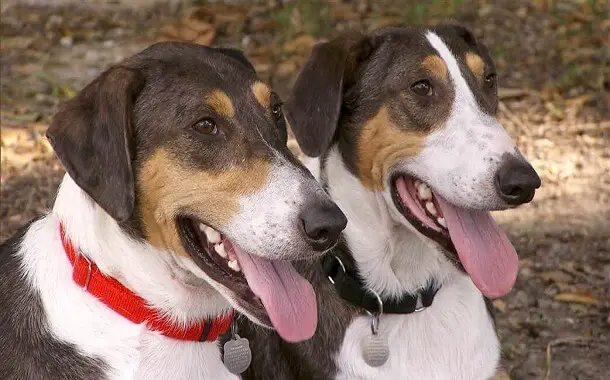How Much Does It Cost To Clone A Dog?
Last Updated on September 14, 2023
Written by CPA Alec Pow | Content Reviewed by ![]() CFA Alexander Popinker
CFA Alexander Popinker
A dog is one of the most adored pets in the world. Many people become significantly emotionally attached to these beings, even if the gestures they make to manifest their affection are sometimes more difficult to understand. Most of the time it’s almost impossible to explain to anyone why you’d want to clone your dog.
However, going beyond the main arguments against such a gesture, from now on it is possible to clone your dog, if you want to try it, and the costs are manageable by many people.
How Much Does It Cost to Clone a Dog?
The price of dog cloning is usually over $50,000 in the US. In addition, you need to find a veterinarian willing to take a tissue sample from the pet and send it to the cloning company. If you’re more of a feline lover and want to clone your cat instead, the cost for such a procedure starts from $35,000.
Some of the most known institutes that investigate and perform cloning procedures are, for example, BioVenic, in California, and ViaGen Pets, in Texas, in the United States. Cloning pets is also an important business in South Korea, where the cost of a cloned dog can reach $100,000 in some elite clinics.
At ViaGen, the main company to perform such procedures, the cloning cost starts from $50,000, with a deposit of $25,000. After the cloning is successful you will have to pay the last $25,000.
Here, the process begins with collecting cells from a donor dog using a skin biopsy kit and then sending them to ViaGen storage facilities.
They will remain in stasis for weeks, months, years, and even decades, in liquid nitrogen, until the customer is ready to clone his pet.
About 85 percent of ViaGen’s business is represented by customers who store their pet’s donor’s cells in the long run, at an annual cost of $150.
The next step in the cloning process involves cultivating millions of cells in a laboratory environment.
Using a high-tech microscope and the nuclear somatic cell transfer process, the laboratory technician injects a single cell into a donor egg with the removed nucleus.
An electrical impulse causes the cell to divide and grow in the form of a living embryo.
Several eggs are inserted into the surrogate mother and left to grow until at least a cloned puppy is born, sometimes several.
What Is Dog Cloning Anyways?
Cloning is the process through which a colony of identical cells is obtained from a single cultured cell.
The cloning process can also be seen as a duplication process, and not reproduction, which results in identical genetic material, which is not obtained by normal reproductory means.
You might also like our articles on the cost of teddy bear dogs, starting your own veterinary practice, or IVF.
Cloning is the process by which, starting from an organism, genetically identical organisms are created, meaning that they have identical genetic material.
Cloning pets consists of making a genetic copy of a living or dead pet, usually a dog or cat, although there have been instances of horse cloning, or even the popular cloning of Dolly the sheep. This involves extracting DNA from the source animal to produce live embryos that will be placed inside a surrogate mother to develop until birth.
Have Dogs Been Cloned Before?
Scientific American reported that doctors surgically implanted 1,000 embryos in 123 dogs to create the world’s first cloned puppy, Snuppy, the Afghan hunting dog, in 2005. Since then, the cloning process has been simplified, but that does not mean that it is an easy process to perform.
The celebrities who cloned their animals gave this practice extra respectability. When Barry Diller and Diane von Furstenberg lost their terrier Jack Russell, named Shannon, they put her on ice and wrote a $100,000 check for Sooam.
What Happens When You Clone a Dog at a Clinic like Viagen Pets?
For pet cloning, scientists must design life in the laboratory. They take eggs collected from donor dogs, remove the nucleus, which is like separating the yolk from the egg white, and then insert cells from the original pet dog.
According to Smithsonian Magazine, the egg then contains all the genetic material of the original pet. It does not need to be fertilized. But to start cell division, something that usually does fertilization, researchers pass an electric current through the egg, turning it into a growing embryo.
The embryo is then surgically inserted into a surrogate mother, a female dog. If accepted, the pregnancy follows, and the hope is for the surrogate mother to give birth to a healthy cloned puppy. As with normal reproduction, the cloned animal will go home after the weaning process.

Are There Risks When Cloning a Dog?
The driving force behind cloning is the desire to have exactly the same pet, both in looks, and personality, close to you for a longer period of time. The cloned genetic constitution is the same as that of the original animal. However, a cloned dog may look differently than you might expect and have an individual personality.
The personality of a pet is a mixture of genetics and the environment in which it lives. External forces, such as training and treating a pet, have a greater impact on the personality of puppies than inherited temperament.
It takes many attempts to clone a dog as the cloning process does not work in about 75% of cases. Implanted embryos do not attach to the surrogate mother, spontaneous abortions occur, or pets are born with congenital defects.
This means that there must be a whole series of dogs at hand to donate eggs and act as surrogate mothers. These laboratory animals are subjected to procedures that, most of the time, fail to produce a clone.
And it is not a painless process for animals either. The egg donor is subjected to hormonal treatments and surgical exploitation of eggs.
Surrogate mothers receive multiple rounds of hormones to prepare for pregnancy and surgical implantation of embryos. Then, descendants who have congenital malformations suffer twice, both at the time of creation and when they are euthanized as a result of their malformations, according to dailypaws.com.
Should I Clone My Dog?
It is hard to say goodbye to your quadruped good old friend, but is animal cloning the best option? Here are a few points to think about:
- Your comfort with allocating $50,000 for the cloning services is important.
- A surrogate dog would be used for pregnancy, and potential expenses related to a C-section might need coverage.
- It’s worth considering that the cloned pup might possess a different personality from the donor.
- The final result of the process of cloning isn’t guaranteed.
- In addition to all of the above, it takes away your chance to know and love a new dog. A furry puppy that, if given the opportunity, could bring a lot of light and joy into your life as well.


Leave a Reply
Want to join the discussion?Feel free to contribute!